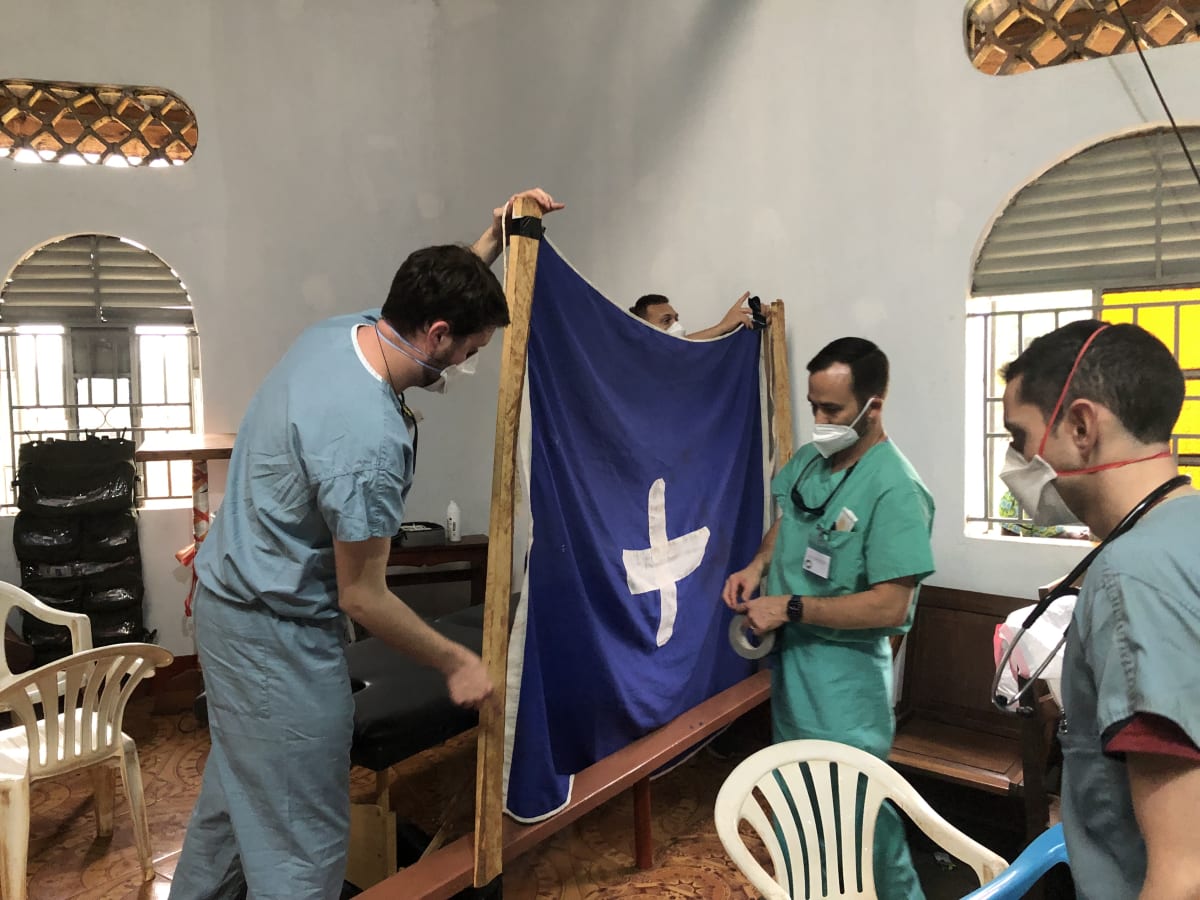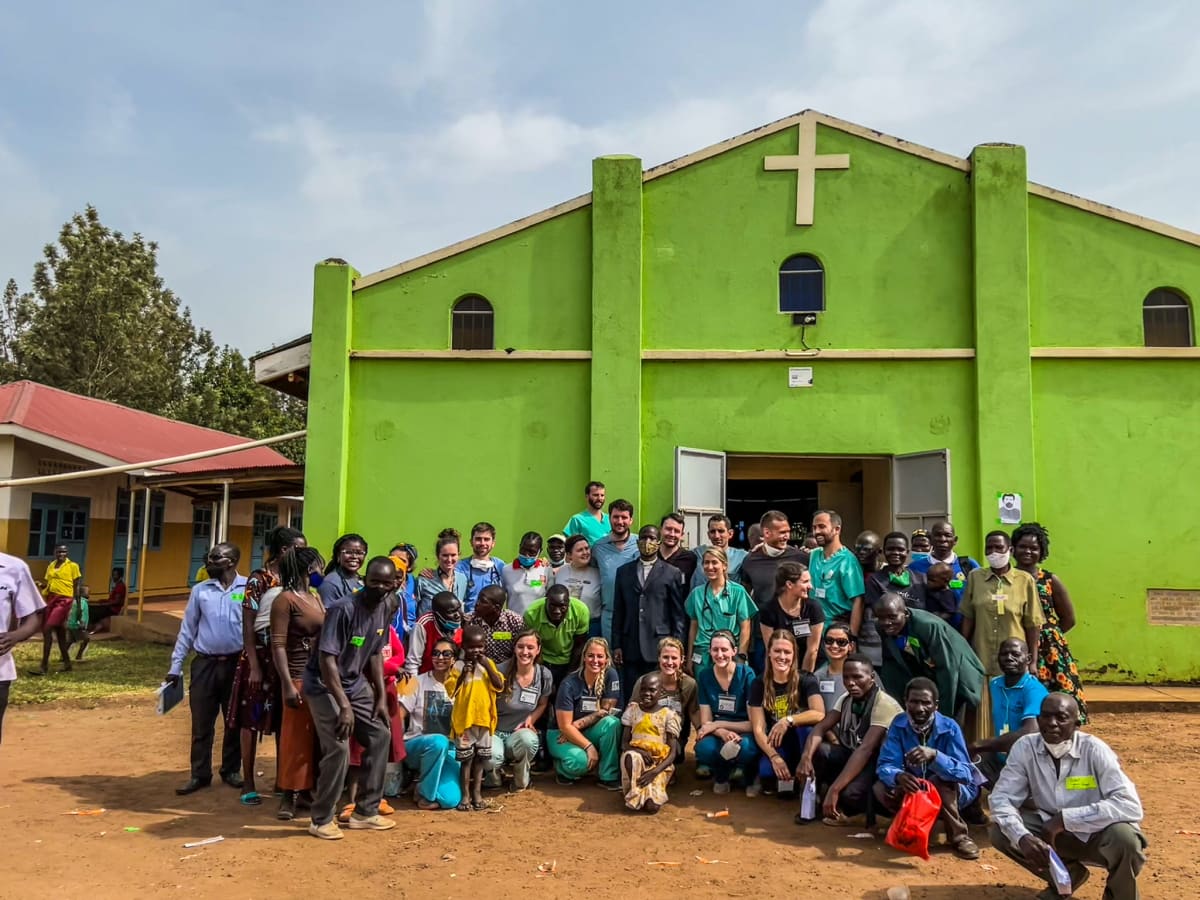This is an annual trip with members of the attending staff and emergency medicine residents at Prisma Health in Columbia, SC. The program focuses on recurring trips to Masindi, Uganda to develop a sustainable supplement to their current medical system at Masindi-Kitara Medical Centre (MKMC). As a resident, I will be working with patients and teaching our ultrasound curriculum with the ongoing goal to establish a real-time teaching and feedback approach to point of care ultrasound.
The population in Masindi, Uganda. This population has access to various medical specialties at Masindi-Kitara Medical Centre (MKMC), but remains a resource-limited region. This population will benefit from our ongoing mission in a sustainable way through increased education on early diagnostics with point of care ultrasound and will continue to receive support with repeat mission trips to the same area and hospital.
We continue to progress our ultrasound curriculum at Masindi-Kitara Medical Centre (MKMC). Long term, we aim to utilize ultrasound in a resource lean area to improve diagnostics and expedite care in both a trauma setting and in the obstetric population in Masindi, Uganda.






Our project took place in the Masindi District in Western Uganda. As a multifaceted project, we had two primary goals while working with both the healthcare professionals and the patient population of the area.
The first goal was to incorporate point-of-care ultrasound (POCUS) at Masidi-Kitara Medical Center (MKMC) with the primary purpose of fetal cardiac monitoring and fetal positioning with additional training in trauma imaging utilizing the Clarius Handheld Ultrasound. The versatility of the device allowed us to use it for teaching on rounds and as an introduction to POCUS for the physicians and clinical officers of the self-sustaining hospital system. The entire team at MKMC showed incredible enthusiasm and the ability to incorporate the device into their daily diagnostics.
Our second goal was patient outreach. We traveled to 3 separate and very distinct towns in the area with our clinical team of pharmacists, translators, nurses, and physicians. In each town, we were able to educate on various health topics ranging from infectious and non-communicable diseases to the importance of nutrition. This was followed up with the connections between patients and services in the area to help support any significant deficiencies or access to care. The patients from each village along with the local translators conveyed the individual hardships and helped us focus on how we could improve acute pathology and long-term care and provided me with insight into the effects of healthcare inequity in a low-income country.
Overall, the project was an amazing experience. From the patients and healthcare providers to the community leaders and the people working with One World Health, I was constantly inspired by the successes of the hard work invested in the community.